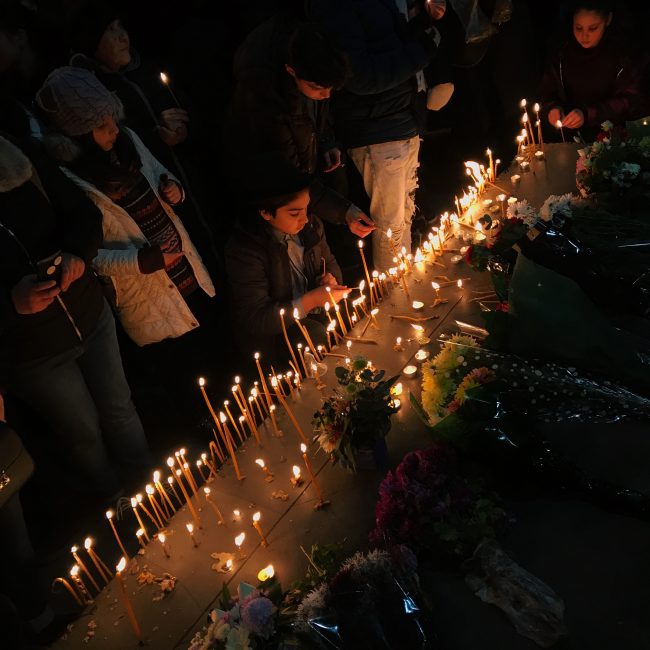

 Two 16-year-old boys have been stabbed to death in a school brawl in Tbilisi. The Prosecutor’s Office has charged two teenagers with ‘premeditated murder of an underage person’, and three others for failing to report the crime.
Two 16-year-old boys have been stabbed to death in a school brawl in Tbilisi. The Prosecutor’s Office has charged two teenagers with ‘premeditated murder of an underage person’, and three others for failing to report the crime.
Davit Saralidze and Levan Dadunashvili died from multiple stab wounds sustained during the fight, which broke out following an argument earlier that day. Both suspects fled the scene.
The Prosecutor’s Office charged two teenage boys with ‘premeditated murder of an underage person’ on 3 December. One was detained on 2 December while the second, who had gone into hiding, surrendered on 4 December.
The brawl
According to the Prosecutor’s Office, an argument broke out on the morning of 1 December when six eleventh year students approached two ninth year students in the school bathroom between lessons. One of the six reportedly pointed an air pistol at the two younger boys, leading to a verbal altercation.
The head of Tbilisi’s #51 School, where the argument took place, denies that it was an air weapon, claiming it was a toy.
After one of the eleventh year students threatened to meet them after school, one of the younger students called a relative, who is also underage, for help.
When the relative, joined by a number of friends, showed up at the school, they were met by the original group of six along with at least 15 others. A fight then broke out in one of the courtyards of a building on Akaki Khorava Street.
An ambulance was called at about 14:10, and Saralidze and Dadunashvili were rushed to hospital.
Dadunashvili died on the way, while Saralidze underwent three operations, but passed away on 2 December from his injuries.
Avtandil Imedadze, the head of the Republican Hospital, told journalists that one of the two had ‘sadistic injuries’ to the chest and stomach, which hit the magistral arteries and thigh veins.
More arrests ‘may follow’
Tbilisi City Court has ordered that the two suspects remain in detention awaiting trial. If convicted, they face 13–17 years in jail.
According to the prosecutor’s Office, evidence against them includes a number of witnesses who participated in the conflict, as well as the knives used in the stabbings.
One of the pair has pled innocent and elected to remain silent.
On 4 December, the Prosecutor’s Office announced they had arrested three more in relation to the murders. According to them, one man ‘became aware’ of the crime but did not notify police, while the two others helped the suspects to flee and hide.
The Prosecutor’s Office said that the man’s two sons also failed to notify police after learning of the crime, and both may now face charges as a result.
Resignation in the Prosecutor’s Office
On 3 December, the Prosecutor’s Office admitted that the father of one of the students involved in the fight is employed by the Prosecutor’s Office, but claimed this would not hinder the investigation.
‘None of the family members or close relatives of [the two suspects] are employed by the Prosecutor’s Office’, they claimed.
They said the man had worked in the Department of Human Resources since 2014, but that he was not involved in this or any other investigation.
Later that day, deputy head of the department Mirza Subeliani announced that the man would resign.
A Wider problem
Interior Minister Giorgi Gakharia said on 3 December that only a ‘small number of people who took part in the conflict expressed willingness to cooperate with the investigation’, claiming it was a ‘serious problem’, as ‘apparently, the perception of crime is still not right in our society’.
Gakharia’s comment echoes discussions and speculation on social and mainstream media whether the ‘criminal thinking of the nineties has returned’.
On 4 December, Mikheil Chkhenkeli, the new Minister of Education, introduced a joint strategy with the Interior Ministry to ‘counter underage crime’, which includes strengthening the role of school guards (known as mandaturi), and more coordination between school guards and the police. Conflict prevention and mediation programmes will also be launched, he said, as well as educational campaigns against bullying and violence, and a new 24-hour counseling hotline for pupils.









